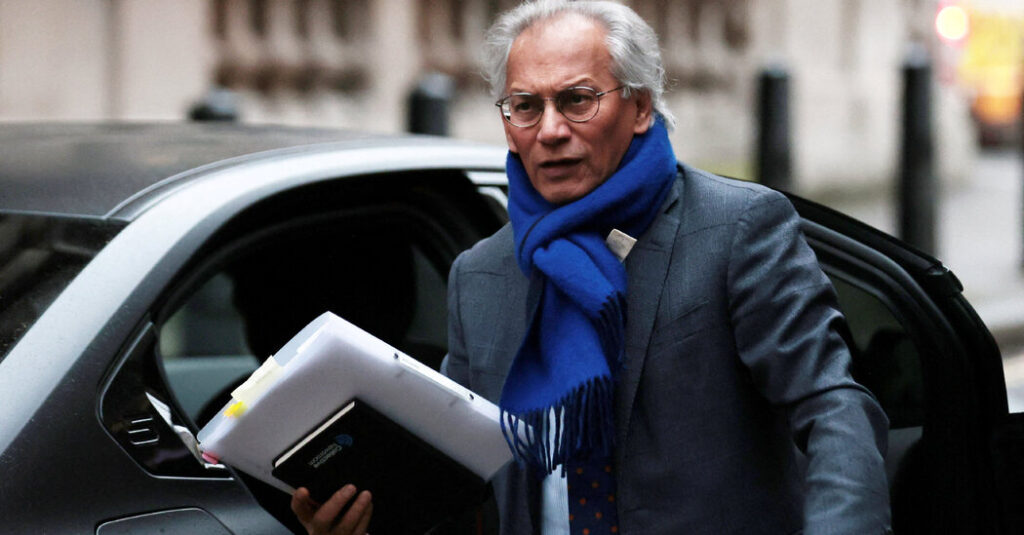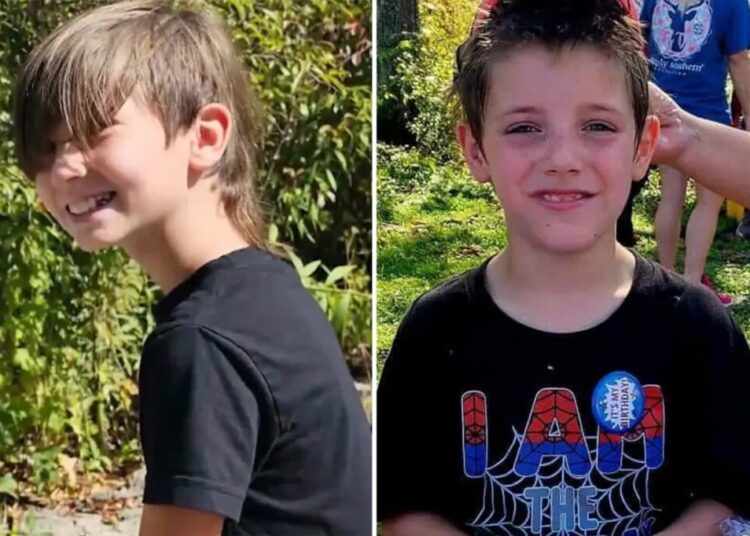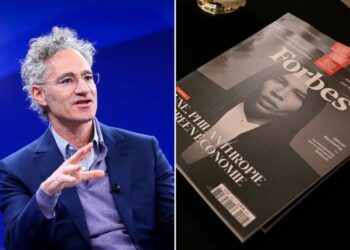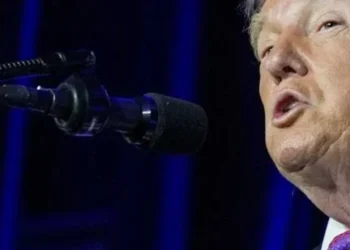Stung by accusations of liberal bias and threatened by a president’s lawsuit, the BBC’s chair apologized again on Monday to a parliamentary committee for failing to swiftly acknowledge misleading editing in a documentary about President Trump. But he said the British broadcaster had unjustly become a political football.
“There is a kind of firestorm around it, and people use it as a way of criticizing the BBC,” Samir Shah, the board chair, told the Culture, Media and Sport committee, which oversees the partly publicly-funded broadcaster.
“We do need to find out, ‘Why does it take so long?’” Mr. Shah said of the seven days it took for the BBC to apologize for the splicing of a speech by Mr. Trump. “The longer it takes, the more it becomes a political football.”
Three weeks after the disclosure about the Trump documentary thrust the BBC into crisis, causing the resignations of two top executives and leading Mr. Trump to threaten his lawsuit, Mr. Shah and a fellow board member, Robbie Gibb, faced some hard questions about their roles in the drama. But observers hoping for an explanation for the broadcaster’s paralysis as the crisis grew — or a full accounting of the divisions on its board — were disappointed.
Multiple BBC executives told The New York Times that the board blocked a plan by news executives to apologize for the Trump error as soon as it became public. When Mr. Shah was asked whether the resignations of Tim Davie, the director general, and Deborah Turness, the head of news, could have been avoided if the BBC had responded more promptly, he answered, “That’s a hypothetical I cannot answer.”
Some BBC employees had asked in an all-hands meeting how Mr. Gibb, a former BBC producer who once served as head of communications to a Conservative prime minister, Theresa May, and helped found GB News, a populist right-wing TV channel, could present himself as an impartiality czar.
Asked at the hearing about the theory that he had orchestrated a coup at the BBC in a campaign to cleanse it of left-wing bias, Mr. Gibb called it “complete nonsense,” adding, “It’s also deeply offensive to fellow board members.”
Michael Prescott, an adviser to the board whose leaked memo pinpointed the editing in the Trump documentary, told the committee that he believed the BBC’s editorial leaders suffered from a culture of defensiveness that hampered their response. But Caroline Daniel, who testified alongside Mr. Prescott and also served as editorial adviser to the board, disagreed. “The BBC took its duty to impartiality very seriously,” she said, adding: “Was the BBC willing to have a proper debate and actually take action? In my view, yes they were.”
Mr. Prescott denied that the BBC suffered from institutional bias. “Tons of stuff the BBC does is world class,” he said, adding: “The root of my disagreement and slight concern even today is that the BBC was not — and I hope they will change — treating these as having systemic causes.”
The hearing elicited the first public comments from key figures in the crisis, including Mr. Gibb and Mr. Prescott. Mr. Prescott was hired as an outside adviser at the encouragement of Mr. Gibb, executives said.
Mr. Trump has threatened to sue the BBC for between $1 billion and $5 billion in damages, though he has not yet filed. His lawyer, Alejandro Brito, said he would likely sue in Florida, which could be challenging given that BBC executives do not believe the film aired in the United States.
The clamor over the BBC is about more than the editing of a single film. It is about allegations of bias, made by critics on the right and left, and a longstanding campaign by commercial rivals who argue the vast organization stifles competition. The BBC often serves as a proxy for broader culture battles in Britain.
Several lawmakers seized on Mr. Prescott’s statement that when he first watched the documentary about President Trump, he assumed the BBC would air what he called an “equally aggressive look” at the Democratic nominee, former Vice President Kamala Harris. How, they asked, would the BBC produce a comparable film about Ms. Harris, given Mr. Trump’s role in the events that led to the mobbing of the U.S. Capitol?
Mr. Prescott, a onetime journalist who has worked for two decades as a corporate communications strategist, said he was a longtime friend of Mr. Gibb. But he, too, pushed back against suggestions that he was driven by a conservative agenda.
“I’m no ideological soul mate of Robbie Gibb,” Mr. Prescott said, adding that he characterized himself as a “centrist dad.”
There were also signs of dissent within the board. On Friday, one of its members, Shumeet Banerji, resigned, citing “governance issues” and saying that he had not been kept informed of the events that led to the resignations of Mr. Davie and Ms. Turness.
Mr. Shah denied this, saying he held a 26-minute phone call with Mr. Banerji as the crisis unfolded. He said he had suggested last summer that Mr. Banerji rotate off the board and was “disappointed” by his claim.
Mark Landler is the London bureau chief of The Times, covering the United Kingdom, as well as American foreign policy in Europe, Asia and the Middle East. He has been a journalist for more than three decades.
The post BBC Chair Tries to Calm Political ‘Firestorm’ Over Trump Edit appeared first on New York Times.




